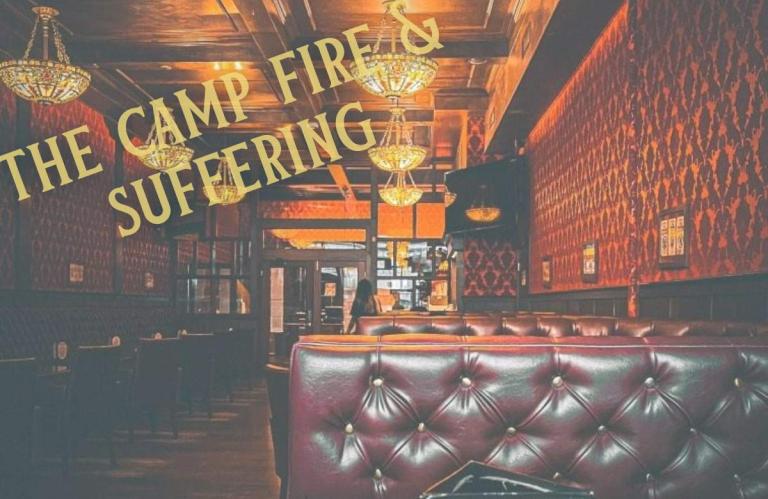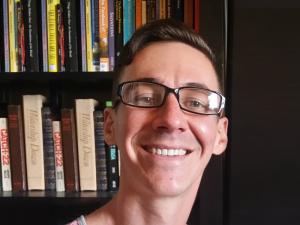I was living 15 minutes away in Chico when the Camp Fire ignited on November 8, 2018. For those unfamiliar with California’s grim tradition of naming wildfires, this one is infamous for its devastation: Paradise, California, was nearly wiped off the map. Eighteen thousand structures disappeared in just three and a half hours. It was as if a nightmare script had been unleashed on an unsuspecting town.
But this isn’t just a story about loss—it’s about what comes after. What do you do when tragedy reshapes the landscape of your life? How do you rebuild, not just homes but also hearts and hope? These are questions I’ve wrestled with since that day, and they remain at the forefront of my mind as I reflect on what it means to live through, and learn from, catastrophe.
The Firestorm’s Wake: An Indelible Mark
The day of the Camp Fire was surreal. By 7:00 a.m., flames had engulfed the hills, and by 9:00 a.m., tens of thousands of people were evacuating along roads choked with smoke, ash, and abandoned cars. Friends described the sounds of propane tanks exploding like a war zone, while the fire’s heat melted car taillights and singed blankets pressed against windows to stave off the inferno. The fire moved so fast that it didn’t engulf trees but sliced through them, creating tunnels of flame.
Paradise wasn’t just destroyed—it was erased. And yet, as someone just outside the immediate danger, I couldn’t escape the fire’s reach. The sky in Chico turned an ominous shade, resembling the alien arrival in Independence Day. Ash blanketed everything. Even miles away, the trauma felt palpable.
For Andy, a friend and co-host of the High Minds podcast, the experience was far more direct. He and his family evacuated, stuck in gridlocked traffic for hours while explosions and flames loomed ominously close. They crammed six people, five dogs, and a cat into a car; what they carried with them—both physically and emotionally—was all they had left.
Learning from Loss: Growth Amid Despair
Tragedy has a way of leveling us, reminding us of life’s fragility. But it can also serve as fertile ground for growth. When you’ve lost everything, as Andy and countless others in Paradise did, there’s a strange freedom in being forced to rebuild from scratch. It’s painful, yes, but also clarifying. What truly matters becomes glaringly apparent when everything superficial burns away—literally and figuratively.
At Happy Woods Farm, my own attempt at rebuilding after the fire, I’ve leaned into this clarity. Farming is an act of hope, a tangible way of pushing back against the devastation. We grow blackberries, brandywine tomatoes, corn, pumpkins, sunflowers, and more. It’s not just about cultivating plants; it’s about cultivating life, community, and resilience.
The farm reminds me of Tolkien’s The Scouring of the Shire, where Frodo and his companions return home to find their beloved homeland ravaged. Yet through hard work, perseverance, and a belief in the goodness of simple things, they restore it. That’s what rebuilding Paradise feels like—a bittersweet, Hobbit-like defiance against despair.
The Permanence of Change
But let’s be clear: life after a tragedy is never the same. Paradise will never be what it once was. As Andy put it during our conversation, “Paradise is gone.” Even for those who return, there’s a recognition that they’re inhabiting a new place, one built atop the ashes of a lost world.
This isn’t pessimism; it’s realism. Tragedy leaves scars, both visible and invisible. The smell of ash lingered for weeks after the fire, a constant reminder of what was lost. And the losses kept coming for many: loved ones, homes, jobs, even the certainty of safety.
Yet these scars also tell a story of survival. They’re a testament to the strength it takes to endure the unthinkable. For those of us who were touched by the Camp Fire but not consumed by it, the responsibility is to carry these stories forward, to honor the memories of those who didn’t make it, and to find meaning in the ashes.
Grounding Ourselves Amid Modern Chaos
As I spend my days in the dirt of Happy Woods Farm, I think a lot about grounding—both literally and metaphorically. Farming ties me to the earth, a welcome reprieve from the endless churn of bad news, digital overload, and the anxiety-inducing pace of modern life. It’s a reminder that life, at its core, is about small, deliberate acts of care: planting a seed, watering a row, harvesting a crop.
There’s a temptation, especially after a tragedy, to retreat into technology, distractions, and numbing routines. And while there’s no harm in a little escapism—God knows I enjoy video games and Tolkien tales—it’s vital to balance this with connection to the tangible world. After all, tragedy has already disconnected us enough.
What Tragedy Teaches Us
The Camp Fire, like all tragedies, taught me that life isn’t guaranteed or fair. But it also taught me the resilience of the human spirit. We are capable of enduring the unendurable, of rebuilding what seems irreparably broken. We are, as Tolkien reminds us, stewards of the earth and each other.
The challenge is to take these lessons and live them, to be better neighbors, better friends, and better stewards of this fragile, fiery planet. As Andy and I reflect on the past six years, we are reminded that while we can’t undo the losses, we can honor them by how we choose to move forward.
So, what do you do when life changes forever? You plant seeds, you rebuild, and you keep moving forward. You carry the weight of loss, but you don’t let it crush you. And you remind yourself, every time you see something new sprouting from the ground, that even after the darkest nights, the sun rises again.
Also, if you’ve been digging my work on here, and want to see me be able to continue writing as close to full-time as humanly possible, please take a look at my Patreon page at www.patreon.com/mjdistefano. Even $1 a month helps bigly!















